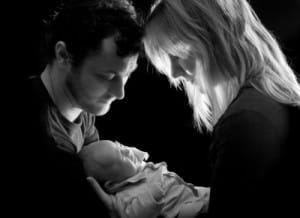
Raising young children is certainly stressful, as any parent can attest to. It may also be depressing, according to a study from the Medical Research Council in London. Parents face their greatest risk of depression within the first year after a child born, roughly 13.93 percent of mothers and 3.56 percent of fathers. After that, however, depression rates for parents remained high for at least 12 years, at 7.53 percent for both mothers and fathers.
“These high rates of depression in the postpartum period are not surprising owing to the potential stress associated with the birth of a baby, [for example,] poor parental sleep, the demands made on parents and the change in their responsibilities, and the pressure this could place on the couple’s relationship,” wrote Shreya Dave, of the Medical Research Council in London, and colleagues.
Having a family history of depression, or being a younger parent, increases a person’s risk of suffering from depression during the early years of parenthood. Parents who were between the ages of 15 – 24 years were more likely to face depression than older parents.
“younger parents may be less prepared for parenthood with more unplanned pregnancies and may be less able to deal with the stresses of parenthood compared with older parents,” Dave and colleagues wrote
The study for this looked at 86,957 families seen in primary-care clinics between 1993 and 2007. At least one third of the mothers and one fifth of the fathers in the study had at least one episode of depression during their children’s first 12 years of life. Some parents had several episodes of depression during the early years.
The researchers say that it may not be parenthood itself, but a combination of other factors on top of parenthood that increases a person’s risk of depression.
“There is a well-established link between depression and social and economic deprivation both in the general population and among parents. This finding may reflect the stresses of poverty, unemployment, low employment grade and lower social support among people of lower socioeconomic status,” the researchers concluded.
Health care providers should use this to access depression risks in parents that they see. Providing support and treatment for those at risk is important to helping those with depression. – Summer, staff writer
Related Articles:
- Daytime Fatigue in New Moms Due To The Quality of Sleep not the Quantity
- Study: Children May Provide Emotional Support During Rough Times
- Study: Stress During Pregnancy Can Affect Child’s Health






